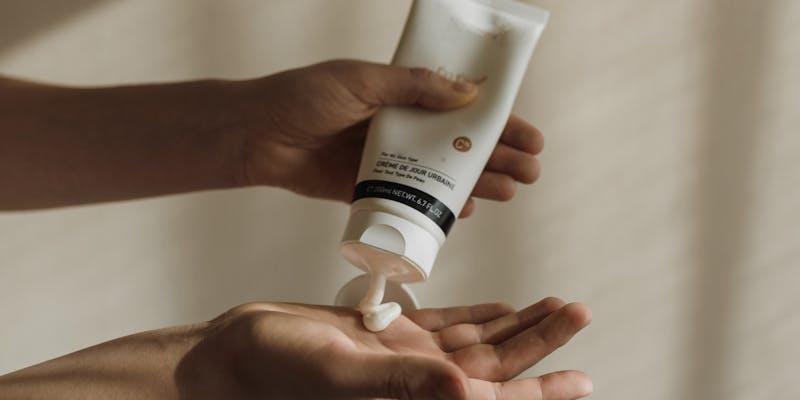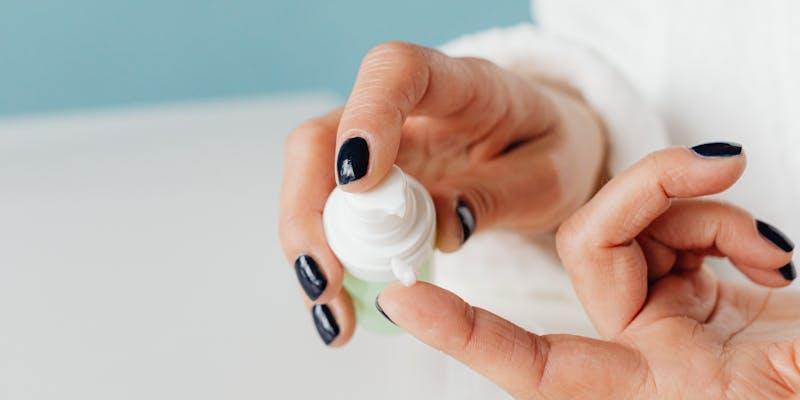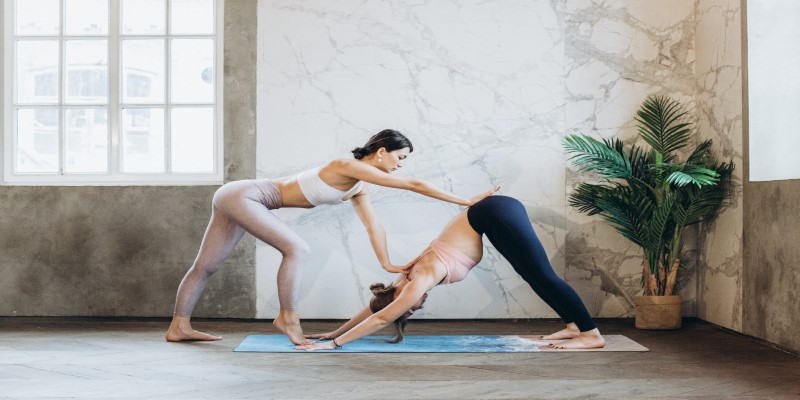Combining benzoyl peroxide and retinoids and making choices may be hard, even for aged skincare devotees. Age-related scars (acne), as well as finer wrinkles, decrease via the use of retinol and benzoyl peroxide. It is currently unknown how well these skincare giants do together, but lets see some evidence and where they point.
Benzoyl Peroxide In Skincare

Benzol peroxide treats acne. It is a bactericidal agent that combats acne-causing germs, which most often lead to inflammatory acne. Benzoyl peroxide kills acne-causing germs, thus helping to ease redness and swelling. It also has anti-inflammatory properties. Lotions and creams of 2.5% to 10% concentration are accessible. A prescription is needed for bigger doses. Besides acne-inflicted skin, benzoyl peroxide boasts more than several other skincare applications, such as:
- Treatment of Acne: Benzoyl peroxide is used in acne therapy. Killing off skin bacteria eliminates or prevents unsightly blackheads, bumps, and pimples.
- Exfoliation: Unlike retinol, benzoyl peroxide removes dead skin cells and may clean the pores. After exfoliation, the skin may have a softer and cleaner surface.
- Anti-Inflammatory Properties: When benzoyl peroxide is used, inflamed acne redness and edema may improve. Cultivating this behavior, in turn, could lead to less acne.
- Versatility: Various benzoyl peroxide preparations, including lotions, gels, creams, and washes, enable the product or face soap with benzoyl peroxide to be tailor-made to fit different skin types and varying individual preferences.
- Timely Results: Benzoyl peroxide is a means of managing acne that works fast. A lot of people say that their acne problems are less severe after using this for some time.
Retinol In Skincare
Vitamin A is mainly retinol, which is incorporated into skin care. Research proofs that it works and covers the spectrum. How exactly? It speeds up skin cell turnover and promotes collagen formation. In short, it helps your skin seem younger and healthier.
Redness, dryness, and sun sensitivity were some side effects that were warned about when prescription retinol was first introduced. In subsequent lines of products like face soap with benzoyl peroxide, alternatives derived from plants appeared, and "gentler" retinoids that were appropriate for use throughout the day were available. Reminoil, a form of vitamin A, is an essential part of any skincare routine because of its potency and versatility:
Clears Acne
Retinol helps cleanse the face and stop further breakouts by unclogging pores. Fewer pimples equal fewer acne scars. Are you seeking information on items that use this advantage? Reviewing retinol for acne scars could be a good idea. Retinol and benzoyl peroxide may also make other topical treatments work better so you get the most out of your treatment plan.
Fights Aging
You may confidently use retinol since it is one of the most studied and utilized anti-aging substances. Despite tretinoin's initial introduction to the market in the 1970s for treating acne, its remarkable anti-aging capabilities were quickly recognized.
Helps Even Skin Tone
an intriguing property of retinol is that it speeds up the process of skin cell renewal, which provides the impression of "exfoliating" the skin. Improved collagen and elastin levels gradually replace older, less vibrant skin with younger, healthier skin that is more even-toned, robust, and radiant. As a general rule, thicker skin is less flawed, more strong, and less abrasive. For this reason, retinol may have a radiating impact on normal to very "problem-free" skin types.
Cost-Effective
Spending on retinol may seem like an extravagance you cannot afford. You may not be able to spend money on retinol. Spending on short-term solutions that don't cost much might cost more than expected. Considering retinol a prudent long-term investment is a smart move since it is one of the few compounds with benefits backed by research.
Can You Mix Benzoyl Peroxide and Retinoids?

You may combine retinol and benzoyl peroxide for a more effective skincare routine. But things won't be easy. These two ingredients could aggravate and dry skin that is already dry or sensitive. If you don't take precautions, applying both simultaneously could lead to painful redness, peeling, and infections.
When used together, retinol and benzoyl peroxide pose a serious skincare danger that should be avoided at all costs. In accordance with medical advice, use benzoyl peroxide first thing in the morning and save the retinol for last thing at night. But, those with very sensitive skin may still find this technique too harsh. See a dermatologist before using these items on your skin.
Retinol and face soap with benzoyl peroxide are two skincare products you may include in your routine. The key is knowing the proper procedures to avoid skin injury. Retinol's anti-aging and skin-renewing properties are well-known, whereas benzoyl peroxide is famous for its effectiveness against acne. Together, mindfulness and skincare provide a comprehensive approach to fighting acne and the signs of aging all at once.
However, handle this mixture with the utmost caution. Both compounds have potential benefits but risk irritating or drying out the skin. You can minimize danger by using it when it's most appropriate. The anti-acne benefits of tretinoin and benzoyl peroxide will last all day if used first thing in the morning. Using retinol before bed may hasten your skin's natural healing process as you sleep.
Alternatives For Benzoyl Peroxide and Retinoids
You may find alternatives to tretinoin and benzoyl peroxide.
Alternative For Retinol
Although retinoids and other vitamin A derivatives may be less irritating than retinol, it is vital to remember that retinol is still a potentially irritating derivative of vitamin A. You should see a dermatologist and use these products correctly.
Alternative For Benzoyl Peroxide
No benzoyl peroxide? Try salicylic or azelaic acid. Salicylic acid prevents breakouts because it exfoliates the skin within pores and releases dead skin cells. You can also use sulfur-based drugs for inflammation and bacterial acne.
Although many viable alternatives to tretinoin and benzoyl peroxide exist, most still find that including both in their skincare routine and switching between them periodically yields better results. It is advised that the optimum time to apply sunscreen is first thing in the morning to delay the signs of skin aging.







